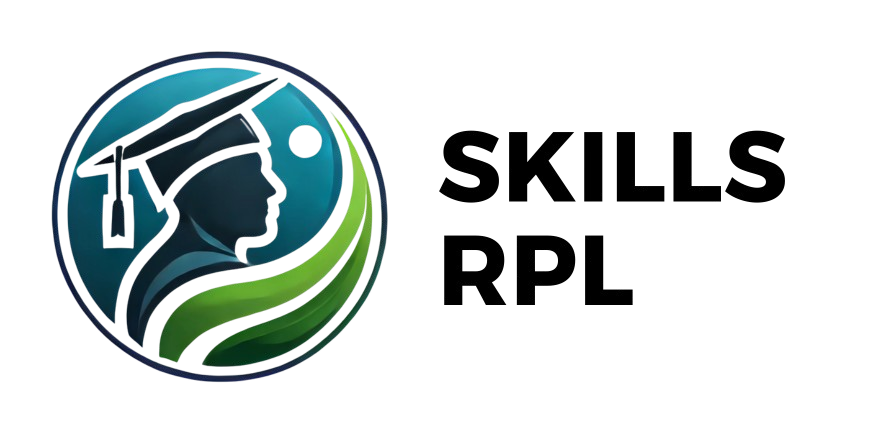What Are RPL Courses?
RPL courses are tailored to individuals who wish to gain formal qualifications by showcasing their prior knowledge, skills, and work experience, rather than attending traditional study programs. These courses offer an assessment process that helps you convert your existing expertise into a nationally recognized qualification.
RPL courses are available in a wide range of industries, including construction, business, healthcare, hospitality, IT, and more. By completing an RPL course, individuals can receive formal qualifications that enhance their employability, career prospects, and educational opportunities.
Why Choose RPL Courses?
Choosing RPL courses offers numerous benefits that can help accelerate your career and open up new opportunities. Here are some key reasons why RPL courses are a valuable option:
1. Gain Qualifications Faster
With RPL, you don’t need to go through lengthy and expensive study programs. If you already have the skills and experience in a particular field, you can leverage those to receive qualifications quickly. In many cases, the RPL process can take just a few weeks, depending on the complexity of your application.
2. Cost-Effective
RPL courses are often more affordable than traditional education. Since you’re not required to study from scratch, you save time and money. You only pay for the assessment of your prior learning, making it a cost-effective option for gaining qualifications.
3. Nationally Recognized Qualifications
RPL qualifications are issued by Registered Training Organizations (RTOs) that comply with the Australian Qualifications Framework (AQF). This ensures that your qualification is recognized throughout Australia, providing you with credibility in the workplace.
4. Recognize Your Existing Skills
RPL courses allow you to gain recognition for the skills and knowledge you already possess. Whether you’ve learned through on-the-job experience, volunteer work, or informal training, RPL enables you to demonstrate your expertise and receive a formal qualification.
5. Career Advancement
Holding a nationally recognized qualification can improve your job prospects, increase your earning potential, and open up career advancement opportunities. Employers highly value RPL qualifications, as they validate your competencies and skills.
6. Migration Opportunities
For individuals seeking to migrate to Australia, RPL can help you meet the qualifications required for skilled migration programs. Certain visa categories require applicants to prove their qualifications, and RPL can provide the formal recognition needed to meet these criteria.
Types of RPL Courses Available
RPL is available for a wide range of industries, including but not limited to:
1. Construction and Trades
RPL qualifications in construction and trades allow workers to formalize their skills in areas like carpentry, plumbing, electrical work, building, and more. Some of the common RPL courses in this sector include:
- Certificate III in Carpentry
- Certificate III in Plumbing
- Certificate IV in Building and Construction
- Certificate III in Electrical Engineering
2. Business and Management
RPL courses in business and management help professionals gain qualifications in leadership, project management, human resources, and other key areas. Examples include:
- Certificate IV in Project Management
- Certificate IV in Human Resources
- Diploma of Business
- Diploma of Leadership and Management
3. Healthcare and Community Services
RPL courses in healthcare and community services allow professionals to gain formal qualifications in fields like aged care, disability support, child care, and more. Some of the most popular RPL courses in this sector include:
- Certificate III in Aged Care
- Certificate III in Disability Support
- Certificate III in Early Childhood Education and Care
- Diploma of Community Services
4. Information Technology (IT)
RPL qualifications in IT provide professionals in networking, software development, and cybersecurity with the opportunity to gain formal recognition for their skills. Common courses include:
- Certificate IV in Information Technology
- Diploma of Information Technology
- Diploma of Cyber Security
5. Hospitality and Tourism
For those working in the hospitality and tourism industry, RPL courses can provide formal qualifications in areas like cooking, hospitality management, and event planning. Some options include:
- Certificate III in Commercial Cookery
- Certificate IV in Hospitality
- Diploma of Hospitality Management
6. Engineering and Manufacturing
RPL qualifications in engineering and manufacturing enable individuals in mechanical, electrical, and industrial engineering fields to gain formal recognition. Examples include:
- Certificate III in Engineering – Mechanical Trade
- Certificate III in Engineering – Fabrication Trade
- Diploma of Engineering – Technical
7. Security and Public Safety
For professionals working in the security or public safety sectors, RPL courses can formalize your qualifications in areas like security operations, risk management, and more. Popular courses include:
- Certificate III in Security Operations
- Certificate IV in Risk Management
- Certificate IV in Security and Risk Management
How to Enrol in an RPL Course
Enrolling in an RPL course involves a straightforward process that typically includes the following steps:
1. Eligibility Assessment
Start by undergoing an eligibility assessment to determine if you are suitable for RPL. Many RPL providers offer a free assessment to evaluate your skills, knowledge, and experience before you commit to the application process.
2. Submit Evidence of Prior Learning
Once you’re eligible, you’ll need to gather and submit evidence of your prior learning and experience. This could include work references, training certificates, samples of work, and other relevant documentation that demonstrates your competency in the chosen field.
3. Assessment Process
An RPL assessor will review your evidence to ensure it meets the required competency standards for the qualification you’re seeking. In some cases, they may request further documentation or conduct an interview to verify your skills.
4. Receive Your Qualification
After the RPL assessment is complete, you will receive your nationally recognized qualification from the Registered Training Organization (RTO) partnered with your RPL provider.
Why Choose Skills RPL for Your RPL Course?
At Skills RPL, we specialize in helping individuals gain formal qualifications through the RPL process. Our network of accredited RTO partners ensures that you receive a legitimate and nationally recognized qualification. Here’s why you should choose us for your RPL journey:
- Free Eligibility Assessment: We offer a free eligibility assessment to help you determine the right RPL path for your experience.
- Streamlined Process: Our team of experts will guide you through the RPL process, making it fast and efficient.
- Affordable Payment Plans: We offer flexible payment options to ensure that RPL is accessible to all professionals.
- Expert Guidance: Our advisors provide continuous support to ensure your RPL application is complete and accurate.
- Nationally Recognized Qualifications: Our RTO partners provide qualifications that are valid across Australia.
Conclusion
RPL courses offer a fast, cost-effective, and legitimate way to gain nationally recognized qualifications based on your existing skills and experience. Whether you’re looking to advance in your career, gain employment, or meet migration requirements, RPL is a powerful pathway to formal recognition of your expertise.
If you’re ready to take the next step in your career, contact Skills RPL today to start your RPL journey and gain the qualification you deserve!

